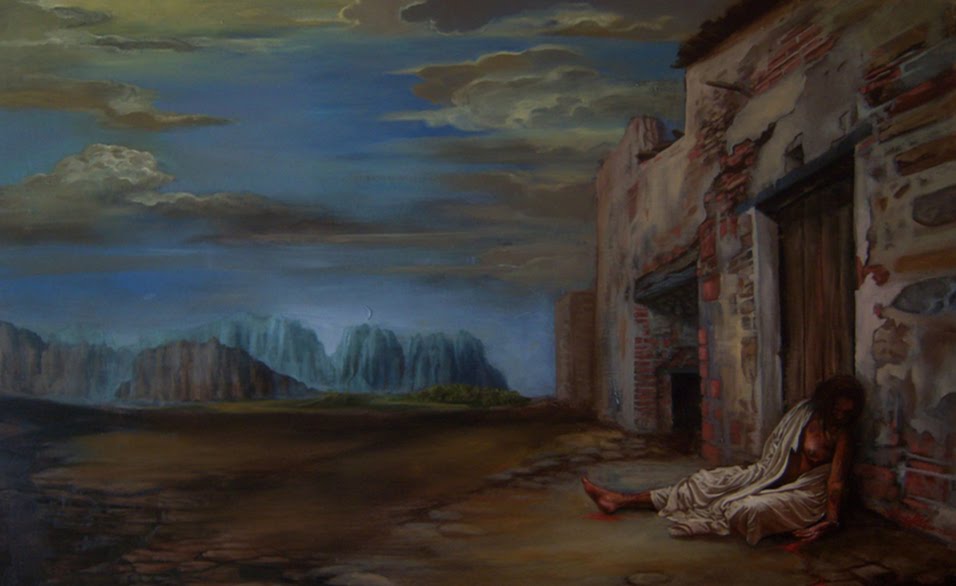
In Chapter 3, Part 3 of Dostoevsky’s novel Demons, Lizaveta Nikolaevna Petrovna is left emotionally distraught after an especially devastating encounter with her abusive husband Nikolai Stavrogin. Nikolai treats Lizaveta very harshly throughout the novel, he keeps his marriage with her secret, lies to her frequently about his love for her, and insists on marrying her only because of the social uproar it would cause when others hear about it. This, combined with an argument with Varavara Petrovina in which she tries to convince Lizaveta that her relationship with Stavrogin is toxic. This causes Lizaveta to storm out of Varavara’s estate into the cold rain. Throughout the novel Lizaveta is portrayed to the reader as an innocent Christian architype. She is not possessed by any radical ideologies and she doesn’t plan or scheme like Pyotr or Stavrogin. She, as a christian is a character which is defined by her relationship to the cold and nihilistic Stavrogin. Her marriage to Stavrogin on the surface seems like a story about a rich aristocrat who falls in love with a poor servant girl, almost like a disney princess movie, however the real circumstances of their marriage is more sinister and is a testament to the harm that Stavrogin’s nihilistic personality has on Lizaveta. A large source of Lizaveta’s inner turmoil throughout the novel stems from Stavrogin’s treatment of Lizaveta, who is someone who is morally connected with religion. One way to read Lizaveta’s character is that she is an innocent character who is caught up in the evil machinations of other characters. Stavrogin is a character who fits into the Devil metaphor which permeates throughout the novel, in which people become possessed by radical ideology. One Scene which connects Lizaveta with the King James BIble is when she is assaulted in the crowd outside of Stavrogin’s house, which is filled with Pyotr’s supporters and followers. This particular symbolizes the moral collapse of society, as Lizaveta is assaulted almost at random by three or four men. What is more jarring is that nobody seems to notice or care that she is being assaulted. The crowd of radicals are not portrayed as individuals, but as a mindless collective. “From the crowd, the tradesmen and another three men were seized. These three up to now have denied any participation in the evil doing, stubbornly insisting that they were seized by mistake, perhaps they are right” (Dostoevsky, 539). The ensuing chaos of the crowd made it hard for the assailants to be found, which is another way in which Dostoevsky criticized radical and harmful ideologies such as Pyotr’s. It is as if these people who assault Stavrogin have been possessed by revolutionary fervor, and they acted in a way in which they would not have if they had no connection to his ideology. This scene mirrors the story of Levite’s concubine in the book of Judges 19:22-30 in which she is brutally assaulted by the Israelities which was brought on by there disconnection from God’s covenant. “So the man took his concubine, and brought her forth unto them; and they knew her, and abused her all the night until the morning” (Judges 19:25, King James V). Similar to how the Israelities forsook god’s covenant, the radical’s were wrapped up in Pyotr Stepanovich’s radical revolutionary ideology which caused the innocent to be unnecessarily and viciously harmed. This connection is just one of the many ways in which Dostoevsky wrote the teachings of the King’s James BIble into his novel to warn people about the demonic possession of radical ideologies.
Leave a Reply